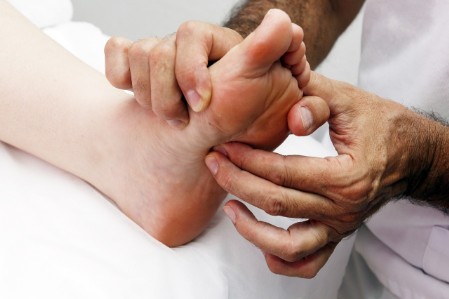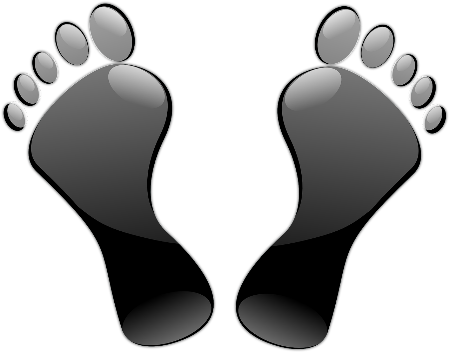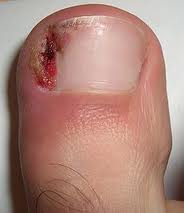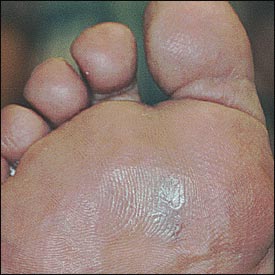Foot Health Checks
An essential part of any podiatry treatment is the assessment of the patients foot health status, any treatment booked requires a foot heath check which is the initial part of the appointment, and with this in mind your first appointment may take longer. To find out what happens and what is needed for the first appointment, click here.

Nail Care
Keeping your toe nails trimmed can help prevent wounds, infection and discomfort. We can offer treatment for patients who need nail care because they can't reach their nails, where the nails are thickened or deformed. Whilst toe nail care is a routine part of our service, we are also checking the general condition of your feet.
Ingrowing Toe Nails
Ingrowing toe nails can be caused by many factors including incorrect footwear, trauma, and incorrect nail trimming. Ingrowing toe nails can be extremely painful, cause infection and make the sufferer want to keep their feet covered at all times.
As podiatrists we can offer different treatments to help with ingrowing toe nail problems:
- conservative managment by cutting the nail back to remove the spike
- bracing the nail providing pressure relief
- undertaking nail surgery to remove the nail at the base and reduce the risk of the nail ingrowing again.



Clearanail & Lacuna Method for Fungal Nail Infection
Fungal nail infections are notoriously difficult to treat. Using over the counter preparations can be effective for superficial infections if used correctly but can take many months to treat the problem. At Runcorn Podiatry we offer treatment using the lacuna method or Clearanail Machine . Small holes are drilled through the nail, allowing a daily spray of antifungal treatment to penetrate the nail and also treat the skin underneath the nail. As with any treatment for fungal nail infections, repeated treatments are likely to be needed.
Contact us if you would like to discuss this treatment.

Callus/Hard Skin and Corns
Corns and Callus form in high pressure and friction areas of the foot. Corns tend to be located on bony areas whereas Callus forms in larger areas of the foot, and in some cases both can occur in the same place. Both issues can cause pain and discomfort, and podiatry treatment can reduce the callus to a more comfortable level and remove corns.
Diabetic Foot Checks
Patients with Type I and Type II diabetes are more at risk of foot problems due to the physiological effects of diabetes on the body and specifically the feet. Diabetics should have an annual assessment of their foot health, including circulation checks and also checks on the sensations in the feet. None of these checks are painful, and at Runcorn Podiatry we can carry out diabetic foot checks , after which we can sent a copy of the results to your GP for their reference and they can then update your records.
The footcheck consists of (not all may be required):
- general health review
- general foot health & skin condition
- checks on the circulation of the feet, including doppler assessment if needed
- checks on the sensation of the feet using the monofilament and tuning fork
- advice on the prevention of wounds on the feet

